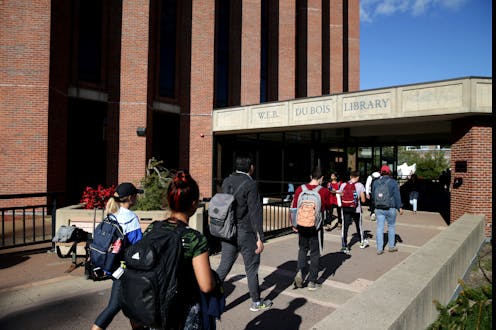4 ways college students can make the most of their college library
- Written by Carrie M. Macfarlane, Director of Research and Instruction, Middlebury
 College students who use the library are more likely to have higher GPAs. Jonathan Wiggs/The Boston Globe via Getty Images
College students who use the library are more likely to have higher GPAs. Jonathan Wiggs/The Boston Globe via Getty ImagesIf you’re a student about to go to college, then perhaps you’ve scanned college orientation websites and social media feeds for glimpses of your new life. As a college librarian, I believe you should explore your...
Read more: 4 ways college students can make the most of their college library

















